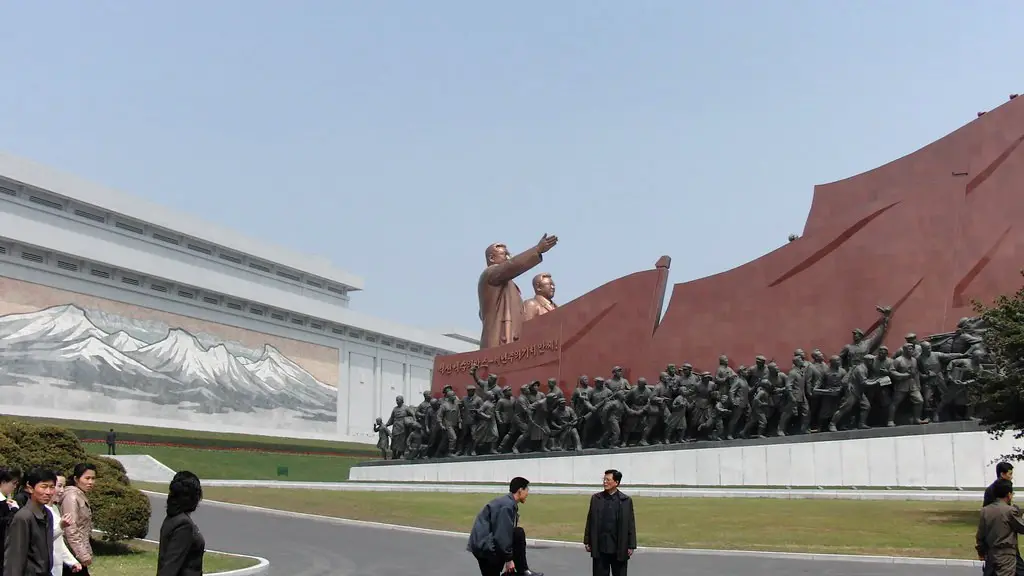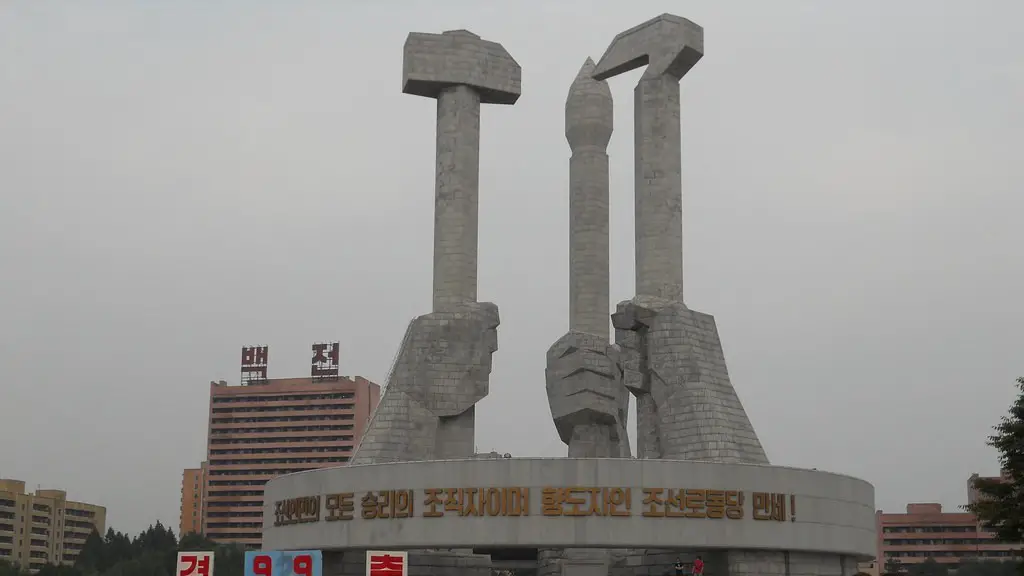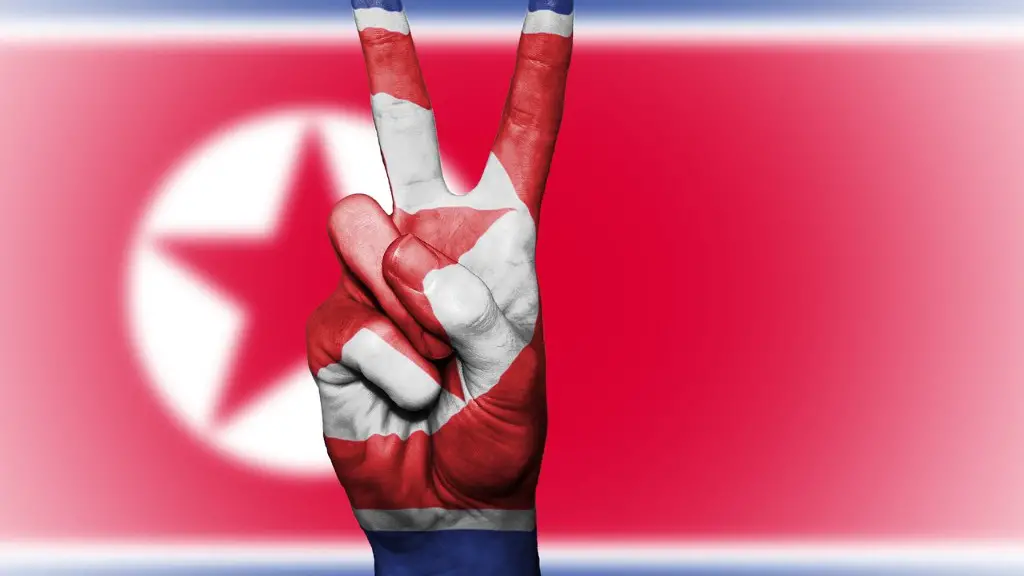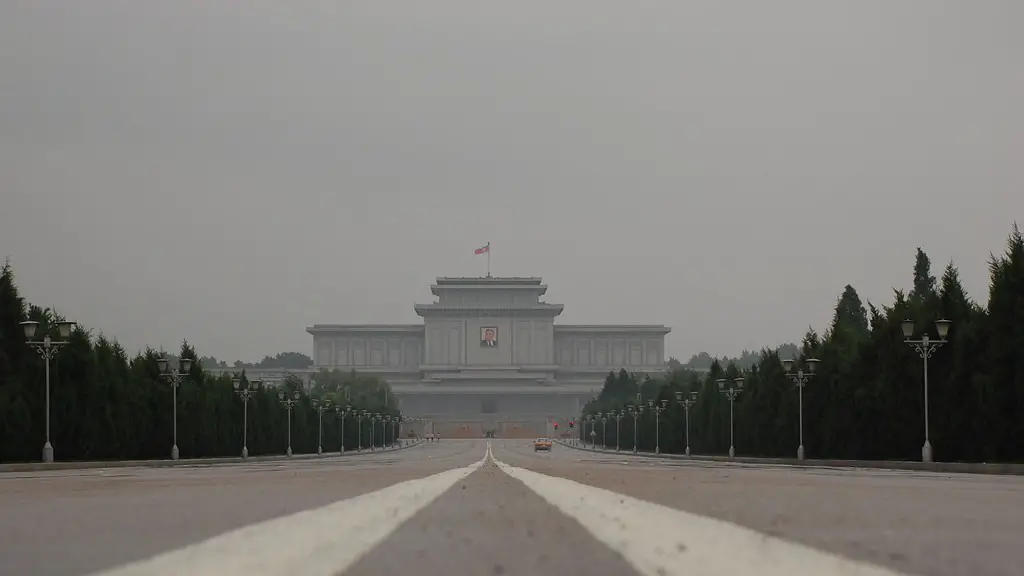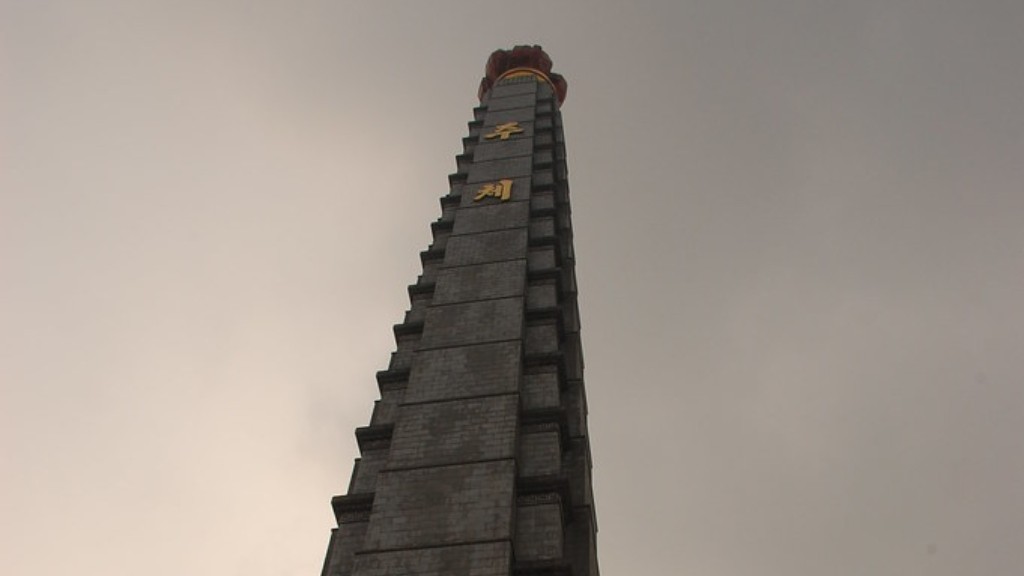Background Information on North Korea’s Nuclear Program
North Korea’s nuclear program dates back to the late 1950s when “The Father of North Korean Nuclear Program”, scientist and Soviet-trained engineer Ri Hong Sop, began his research into nuclear technology. By the end of the 1960s, North Korea had signed a safeguard agreement with the International Atomic Energy Agency (IAEA). After the 1991 breakup of the Soviet Union, North Korea began to develop its own nuclear weapons program in earnest. North Korea shocked the world in October 2006, when it conducted its first successful test of a nuclear device. Two more test explosions followed in 2009 and 2013.
Since then, North Korea has conducted additional tests and attempts to acquire missile technology capable of delivering nuclear weapons over distances of up to 5,000 km, which would give it the ability to strike targets in North America, Japan and possibly even further afield if the weapon can be miniaturized. This has raised alarms in the international community and resulted in numerous UN Security Council resolutions, sanctions and attempts by world leaders to broker a deal.
Why is North Korea using Nuclear Weapons?
North Korea has repeatedly claimed that it requires nuclear weapons as a deterrent to protect itself from the threat of a US-led invasion or regime change. The country’s leader Kim Jong Un has stated that his aim is to achieve a “balance of power” in the region and to establish a “peaceful nuclear power status” between North Korea and the United States. This suggests that North Korea is using nuclear weapons for defensive purposes, perhaps as a way to ensure its survival.
Pyongyang has also indicated that its nuclear weapons program is intended to give it leverage in negotiations with the United States, Japan and South Korea. By developing nuclear weapons, North Korea is able to demonstrate its willingness to engage in hostile behavior if it feels threatened. North Korea has also suggested that it could use nuclear weapons as a bargaining chip in international negotiations.
North Korea’s nuclear weapons program is also seen as a tool for regime survival. The country’s leaders believe that by possessing nuclear weapons, they can prevent their regime from facing the fate of Libya and Iraq, both of which were overthrown by US-led invasions after they abandoned their nuclear programs. North Korea’s leaders may also see nuclear weapons as a way to increase the country’s status and prestige on the world stage.
Political Perspectives on North Korea’s Nuclear Weapons Program
Most experts agree that North Korea’s nuclear weapons program is designed to protect the regime and give it additional leverage in negotiations. However, there are disagreements on how to address the issue. Some argue that negotiations are the best way forward while others suggest that military action may be necessary.
The United States has taken a hard line on North Korea, imposing sanctions and leading international campaigns to isolate Pyongyang. However, Washington has also consistently stated that it is willing to negotiate with North Korea if it takes concrete steps towards denuclearization. Other countries, such as China and Russia, take a less confrontational approach, preferring dialogue and engagement with North Korea.
The governments of Japan and South Korea are also divided on the best approach. Japan has adopted a strong stance on North Korea, pushing for sanctions and tough diplomatic measures, while South Korea has favored dialogue and engagement.
The Impact of North Korea’s Nuclear Program
The development of North Korea’s nuclear weapons program has had far-reaching implications for security in the region. North Korea has argued that it has the right to possess nuclear weapons and has threatened to use them against its adversaries if provoked. This has put the region on edge and raised concerns about a potential conflict.
It has also had serious economic effects, as international sanctions have been imposed on North Korea in response to its nuclear program. This has contributed to severe economic hardship in the country and has hindered its ability to develop its infrastructure and economy.
The nuclear crisis has also strained relations between North Korea and its neighbors, as well as between North Korea and the United States. This has further isolated North Korea and made negotiations between the two sides difficult.
The Opposing Voices on North Korea’s Nuclear Program
Not everyone agrees with North Korea’s nuclear program. While some argue that North Korea should be allowed to possess nuclear weapons as a deterrent, many believe that non-proliferation is necessary to ensure peace and security in the region.
Opponents of North Korea’s nuclear program argue that nuclear weapons could be used for offensive purposes, rather than just for deterring attacks. They argue that North Korea could use nuclear weapons to blackmail its adversaries or to gain leverage in negotiations. Critics of the program also argue that it could trigger an arms race in the region, as other countries could then feel the need to develop their own nuclear weapons.
Some argue that the only way to resolve the crisis is for North Korea to abandon its nuclear program. They argue that this would reduce tensions in the region and allow for the establishment of better relations between North Korea and its neighbors.
The International Response to North Korea’s Nuclear Program
The international community has taken a range of approaches to address North Korea’s nuclear program, from sanctions and isolation to dialogue and engagement. The United Nations Security Council has passed a number of resolutions condemning North Korea’s actions and calling for a diplomatic resolution to the crisis.
Several countries, including the United States, South Korea, and Japan, have also taken steps to engage with North Korea in an effort to resolve the crisis. In 2018, South Korean president Moon Jae-in and North Korean leader Kim Jong Un met in an historic summit and agreed to work towards the denuclearization of the Korean peninsula. However, tensions have since risen as stalemates in negotiations between the US and North Korea continue.
The United States has also sought to tighten sanctions on North Korea as a way to pressure it to abandon its nuclear program. The US and other countries have imposed sanctions on North Korea’s financial and political institutions in an effort to limit the country’s access to funds and resources that could be used for its nuclear program.
The Future of North Korea’s Nuclear Program
It remains to be seen what will happen to North Korea’s nuclear program in the future. Negotiations between the US and North Korea have stalled and it is unclear if a deal will be reached. In the meantime, North Korea continues to modernize and expand its nuclear capabilities, raising fears of a potential conflict in the region.
Many experts believe that North Korea’s nuclear program is here to stay and the only way to address it is through dialogue and negotiations. Some have argued for the establishment of a nuclear-free zone in the region, or for the implementation of regional security measures that could address the concerns of all parties involved. Whatever the solution, it is clear that the future of North Korea’s nuclear program will have significant implications for security in the region.
The Psychological Impact of North Korea’s Nuclear Program
The development of North Korea’s nuclear weapons program has had a significant psychological impact on the region. The threat of a nuclear conflict has led to fear and anxiety among the populations of affected countries, and has caused people to reevaluate their opinions on a range of issues.
The debate on North Korea’s nuclear program has also generated strong emotions, and people have become increasingly polarized in their views. The toxicity of the debate and the demonization of opposing views have had a detrimental effect, as people have become increasingly isolated in their beliefs.
The psychological effects of North Korea’s nuclear program have been felt not only by those in the region, but by people around the world. The nuclear crisis has raised awareness of the issue and has forced people to confront the realities of a potential nuclear conflict. As such, it has become an increasingly important issue in international discourse.
The Humanitarian Cost of North Korea’s Nuclear Program
The development of North Korea’s nuclear weapons program has had a profound effect on the people of the country. Sanctions imposed on North Korea in response to its nuclear program have exacerbated the country’s humanitarian crisis, as its economic decline has left millions of people in poverty.
The sanctions also limit the ability of humanitarian organizations to provide aid to those in need. Meanwhile, North Korea continues to spend money on its nuclear program and missile technology, instead of investing in its people. This has led to shortages of food, fuel and medical supplies.
The humanitarian crisis in North Korea is further exacerbated by the country’s oppressive political system, which restricts freedom of speech and assembly. This has made it difficult for civil society groups to bring attention to the plight of the North Korean people and to encourage their government to invest in servicing its population rather than its nuclear program.
Conclusion
North Korea’s nuclear program is a complex issue with serious implications for security in the region and around the world. The program is a source of tension and anxiety, and has been a major contributing factor to instability in the region. Opposing voices have clashed in a toxic debate, while North Korea’s population continues to suffer from the humanitarian effects of the program.
